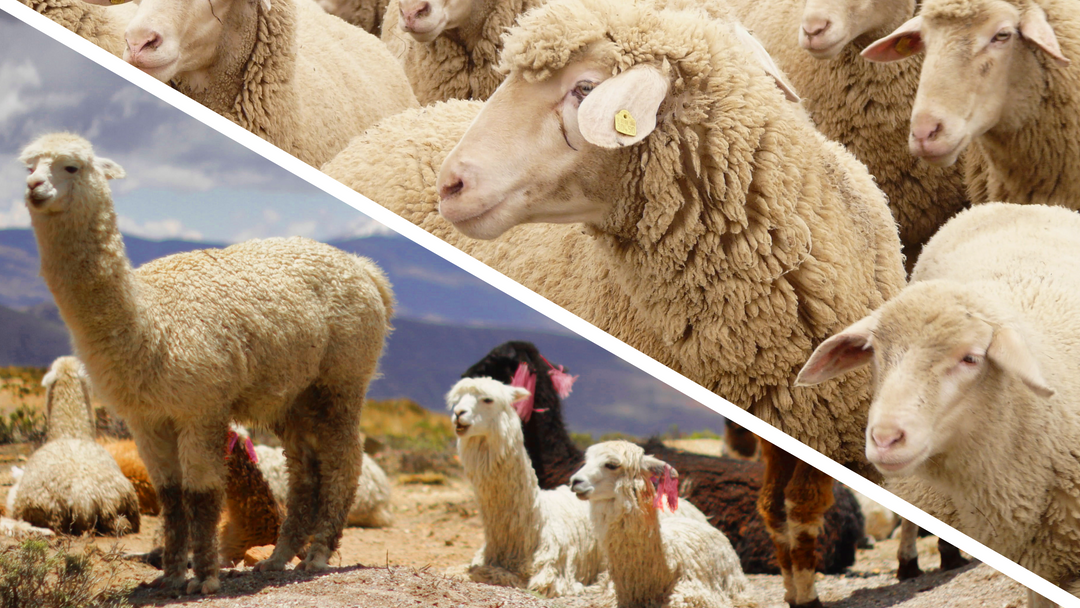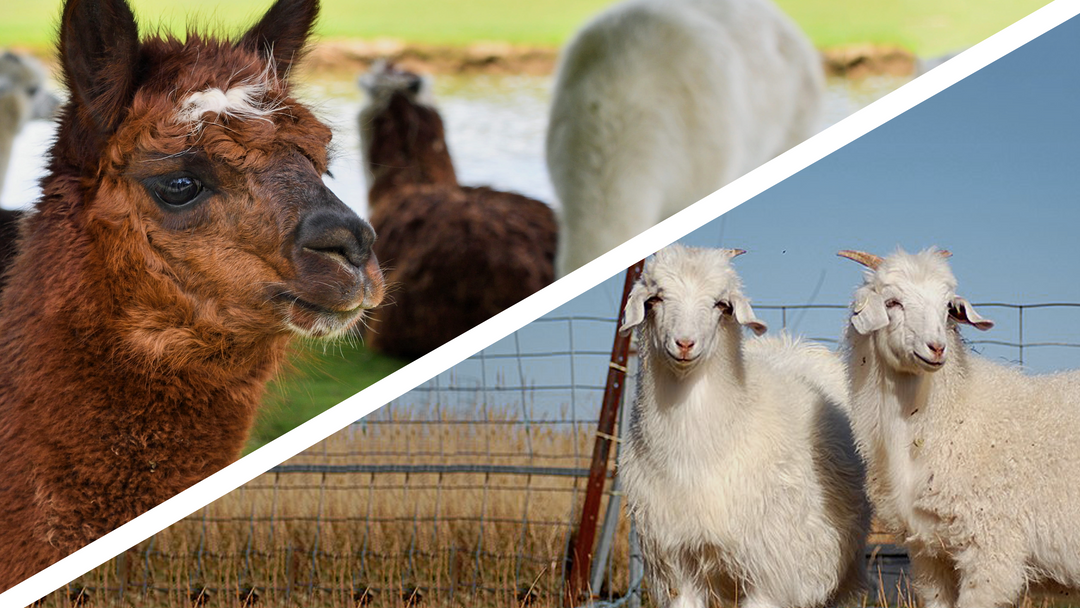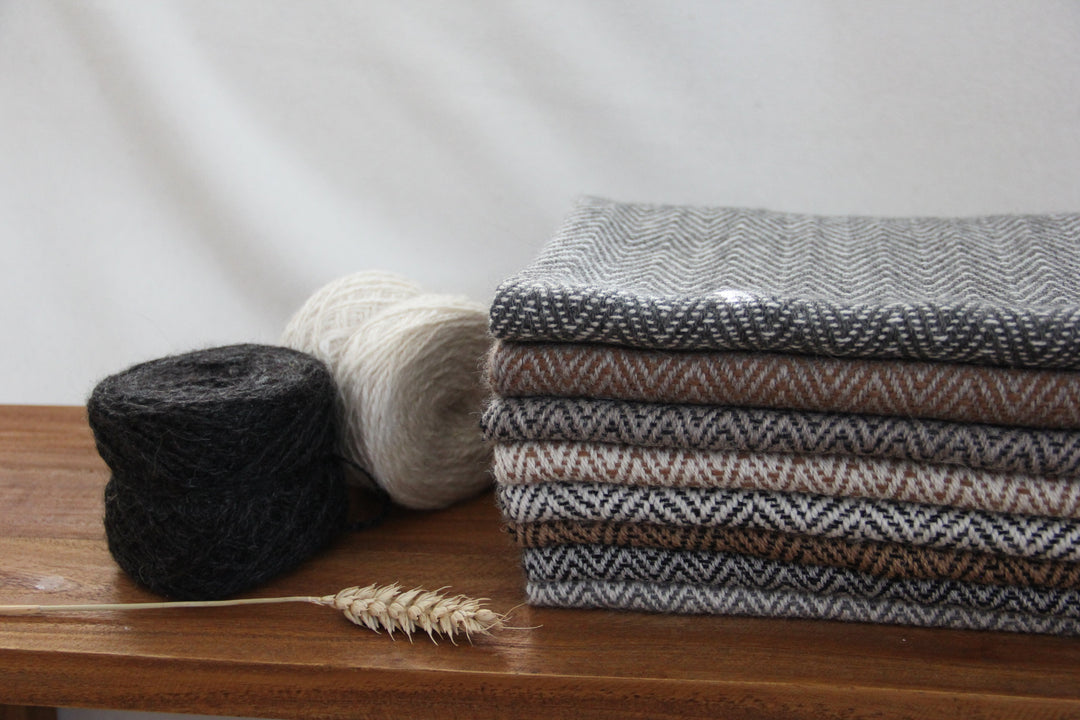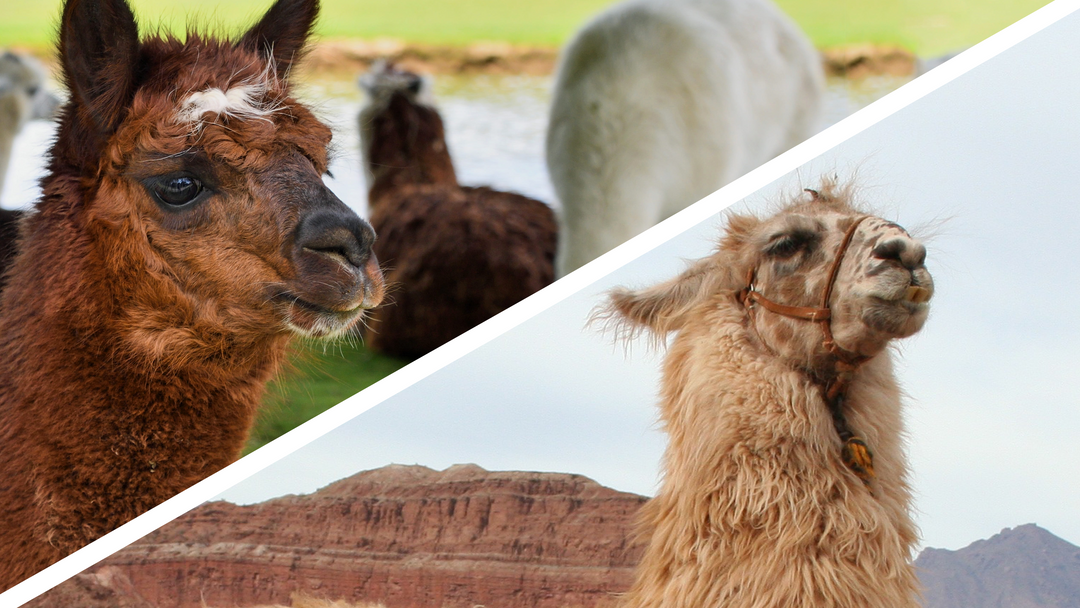Alpaca wool is a natural and versatile material that has been used by Andean communities for centuries. With its softness, warmth and durability, alpaca wool has become a popular choice for winter clothing and accessories. In addition, as a hypoallergenic and sustainable fibre, it is an increasingly attractive choice for those seeking high quality products with a lower environmental impact. In this article, we explore the properties and benefits of alpaca fibres, as well as the different types of alpaca wool and how they are produced. If you are looking for information about alpaca products, visit our blog to learn more about alpaca wool products.
The properties of alpaca wool

One of the prized qualities of alpaca wool is its softness and warmth. The alpaca fibre is very soft to the touch and offers a great level of comfort, making it ideal for winter clothing and accessories to keep warm. In addition, alpaca wool is abrasion resistant, which makes it durable and suitable for everyday use. Another important feature is that it is hypoallergenic, which makes it ideal for people with sensitive skin.
Alpaca wool is also known for its wide variety of colours. The natural alpaca fibre comes in over 22 different shades, from pure white to deep black and a variety of beige tones, which allows craftspeople to choose the appropriate alpaca fibres for their products.
In summary, alpaca wool is a natural, soft, warm, abrasion resistant, hypoallergenic and richly coloured fibre that is ideal for winter clothing, accessories and home decor products. With its wide variety of colours, craftsmen can create unique and appealing products that combine functionality and aesthetics. In addition, the softness and warmth of alpaca wool products make them very comfortable to wear, and their durability and longevity ensure that the products will last a long time.
Advantages of alpaca wool

Sustainability:
Alpaca wool is known as a natural and sustainable fibre, but it is important to note that not all alpaca wool is produced in an equally environmentally friendly way. Later in this article we will explore in detail the different types of alpaca wool and how they are produced so that you can choose truly sustainable alpaca products.
Hypoallergenic:
Alpaca wool is hypoallergenic as it contains no lanolin, making it ideal for people with sensitive skin or wool allergies. In addition, alpaca wool is less irritating to the skin than other wools due to its soft and even texture, making it ideal for people with skin conditions such as eczema or psoriasis.
Light and Warm:
Alpaca wool is a natural fibre with high insulating properties, which means it retains body heat and keeps it close to the skin, creating a comfortable warm feeling. This makes it ideal for winter garments such as coats, jumpers and scarves, as it helps keep the body warm in cold weather. Alpaca wool is also very lightweight, which means it doesn't weigh the wearer down and is comfortable to wear all day. This combination of warmth and lightness makes it a great choice for winter clothing and accessories.
Perfect for warm days:
Alpaca wool is a versatile and adaptable fibre, thanks to its natural insulating properties. This means it's not only perfect for keeping warm in winter, but can also help you stay cool on warm days. By absorbing moisture from the body and releasing it into the environment, alpaca wool helps to maintain a comfortable temperature, making it an ideal choice for summer clothing and accessories. In summary, alpaca wool is a versatile fibre that can be used in different seasons and weather conditions.
The different types of alpaca wool
Although alpaca wool is widely accepted as a high quality option, it is important to stress that its quality can vary depending on where the animal is bred. The following points examine the quality of wool from free-range alpacas compared to farmed alpacas.
Alpaca wool from farms

Alpaca wool raised on farms is a popular option for the production of clothing and accessories due to its softness, warmth and durability. However, the quality of wool from farm-raised alpacas can vary depending on the conditions in which the animals are kept and their diet. In general, the wool from farm-raised alpacas may have a larger fibre diameter than the wool from free-range alpacas, which means it may not be as soft to the touch. Due to the limited environment on farms, the variety of colours and patterns can also be limited compared to wool from free-range alpacas. However, the production of alpaca wool on farms is usually more consistent and predictable in terms of quantity and quality.
Sustainability of farm alpaca wool:
It is important to note that raising alpacas on farms outside their natural habitat can have a negative environmental impact due to the need for artificial grazing, chemicals, pesticides and fertilisers. Animals kept on intensive farms can also suffer from unideal living conditions, which has an impact on their welfare and therefore on the quality of their wool.
Different diameters of alpaca wool from farms:
- Royal Alpaca: has a diameter of less than 19 microns, which makes it very soft and prevents scratching of the skin.
- Baby Alpaca: has a diameter between 19 and 22 micrometres, known for its softness and comfort.
- Superfine Alpaca: has a diameter between 22 and 24.9 microns and offers warmth and durability.
- Fine Alpaca: has a diameter between 25 and 27.9 micrometres and is suitable for everyday use.
Wool from free-roaming alpacas
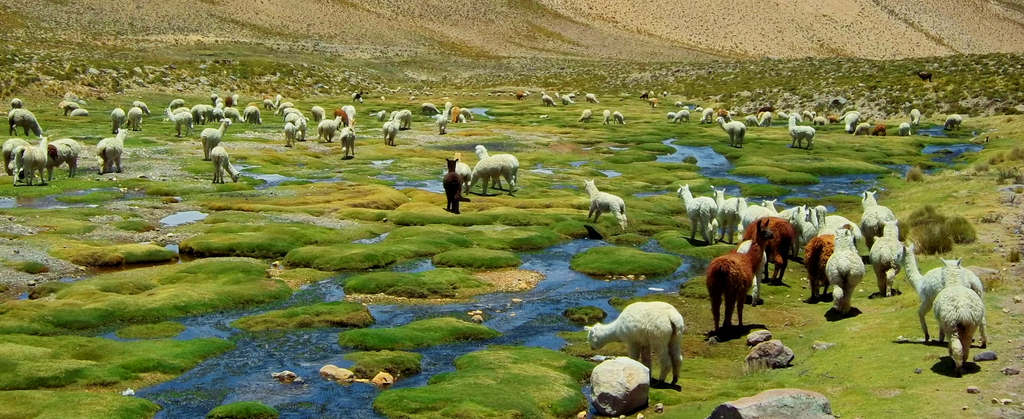
Alpaca wool is known for its softness, warmth and durability, but did you know that wool from free-range alpacas is even better? Alpacas that live free are exposed to less stressful situations, such as extreme weather or constant human presence, which results in a softer and more durable wool. Also, alpacas that live free have access to a natural diet, which helps to produce a healthier and shinier wool. They also tend to have longer fibres compared to those raised in a controlled environment, resulting in a more durable and long-lasting wool. They also have a greater variety of natural colours, which allows artisans to choose the best fibres for their products and not use chemicals to dye the fibres. The texture of wool from free-range alpacas is also softer, as the animal is not vulnerable to cuts, scratches or damage to its fur. This is because free-range alpacas have less contact with sharp objects and more freedom to move around, which reduces the risk of damaging their wool.
Sustainability of wool from free-range alpacas:
Wool from free-range alpacas is a sustainable option as it is naturally sourced from free animals and therefore has a lower environmental impact compared to the mass production of wool. In addition, this wool is also safer for the environment and the people who use alpaca products, as no chemical treatments are needed to preserve the wool. Allowing alpacas to live and reproduce in their natural habitat promotes the protection of these animals and their ecosystems and contributes to sustainable production.
For this reason, it is important to support producers who keep alpacas in freedom and in their natural habitat to ensure sustainable and ethical production in the future.
In summary, the wool from free-range alpacas has significant advantages over the wool from alpacas kept on farms. The wool from free-range alpacas is softer, warmer and more resilient due to its natural husbandry. Moreover, as a natural fibre, it does not require chemical processing, which also contributes to sustainability. In general, wool from free alpacas is a better choice for those seeking high quality products with reduced environmental impact.
Comparison with other fibres:

Alpaca wool is a natural fibre that has been used by Andean communities for centuries. It is particularly soft, warm and durable, making it a popular choice for winter clothing and accessories. But how does alpaca wool compare to other natural fibres such as sheep's wool or cashmere wool?
Sheep's wool is another popular natural material used in winter clothing. Unlike alpaca wool, sheep's wool is thicker and stiffer, which makes it less soft to the touch. Nevertheless, alpaca wool is more resistant to wear and has a higher thermal insulation capacity. However, sheep's wool is easier to obtain and therefore cheaper.
Cashmere wool is another natural material used for winter clothing, but alpaca wool has gained prominence as a better alternative because it has natural properties such as softness, warmth and durability. Unlike cashmere, which has lost value due to mass production in China, alpaca wool has proven to be an exclusive and high quality product. It is important to note that the mass production of cashmere has led to a decrease in the quality of the final product, which distinguishes it from alpaca wool.
In summary, alpaca wool, sheep wool and cashmere wool are natural fibres used in winter clothing. Each fibre has its own properties and advantages, such as softness, warmth, abrasion resistance and thermal insulation. The choice between these fibres depends on the use of the end product and the buyer's budget.
Conclusion

In summary, alpaca wool is a natural and versatile fibre with many valuable properties such as softness, warmth, durability and a wide range of colours and patterns. It is a popular choice for winter clothing and accessories, as well as home décor products. In addition, as a hypoallergenic and sustainable material, it is an increasingly attractive choice for those seeking high quality and environmentally friendly products. It is important to note that alpaca wool is sourced from free-range animals and is naturally sourced, which counteracts the environmental impact compared to the mass production of wool.
Alpaca wool has been used by Andean communities for centuries and valued for its unique properties. With the growing interest in sustainability and ethics in the fashion industry, it is expected that alpaca wool will gain popularity in the future. Furthermore, supporting producers who raise alpacas in freedom and in their natural habitat will help to ensure sustainable and ethical production. Therefore, it is expected that alpaca wool will be increasingly valued in the fashion industry. Therefore, we encourage people to give alpaca products a chance and benefit from all its advantages. It is a way to support local producers and contribute to a more sustainable industry.






